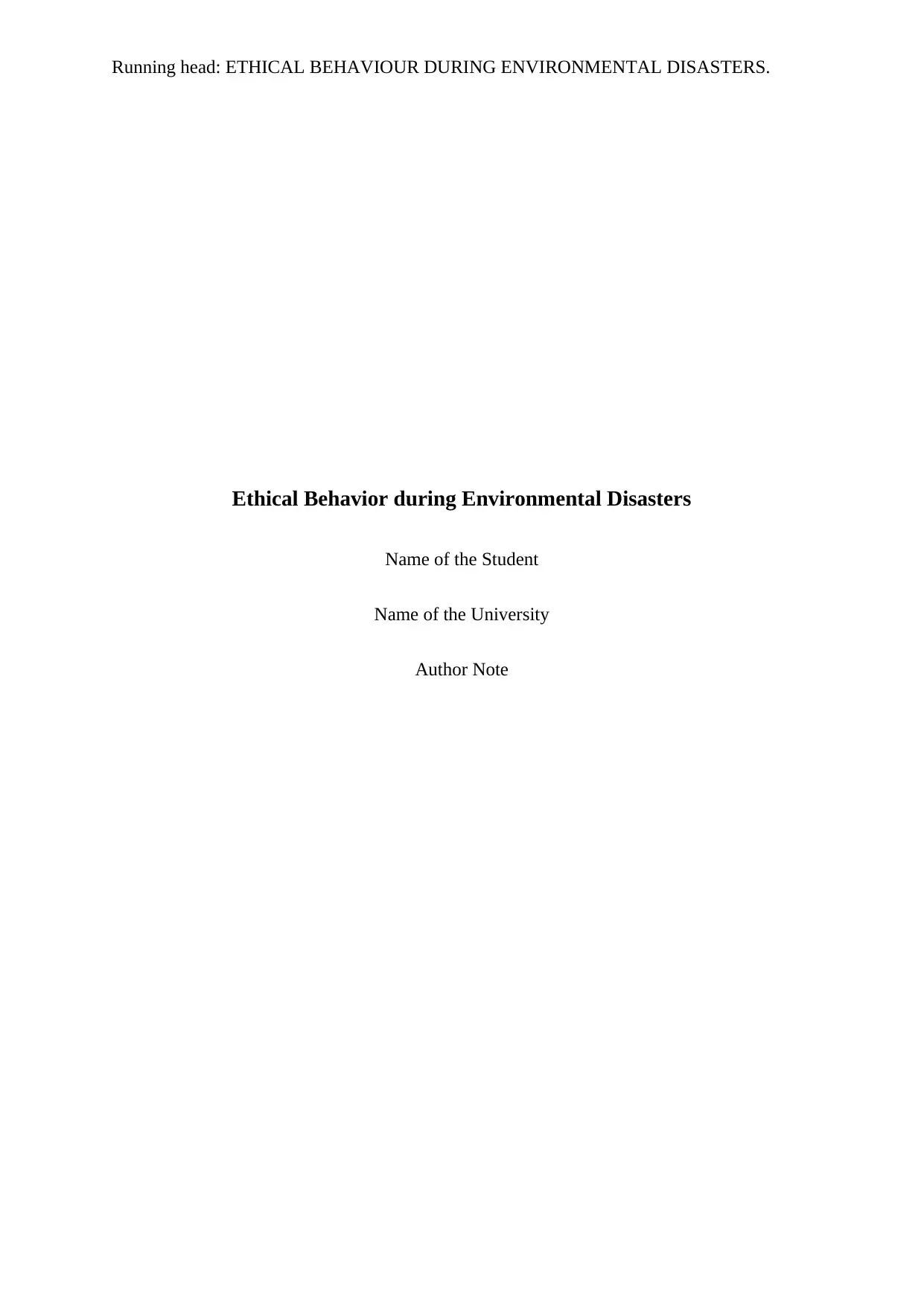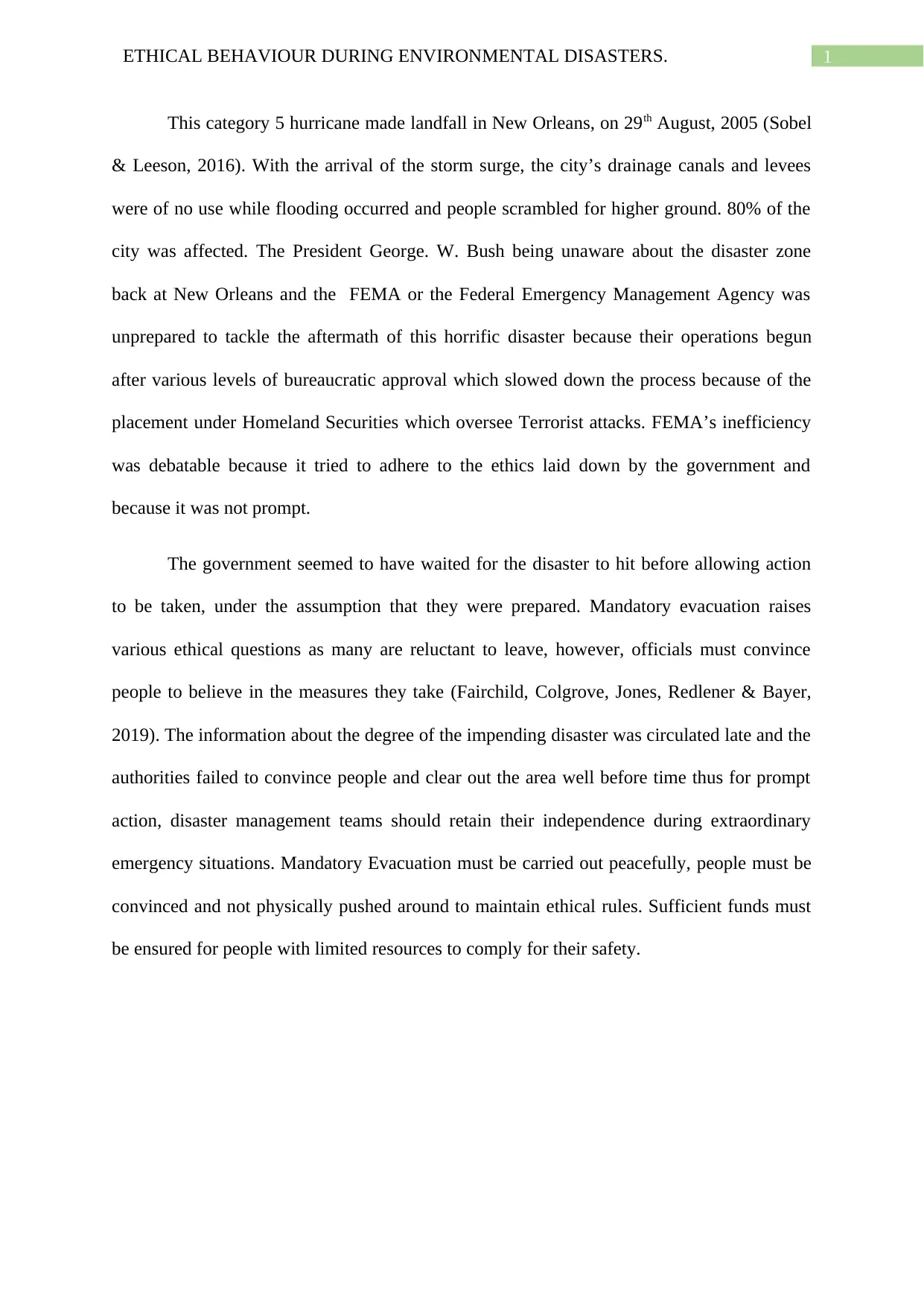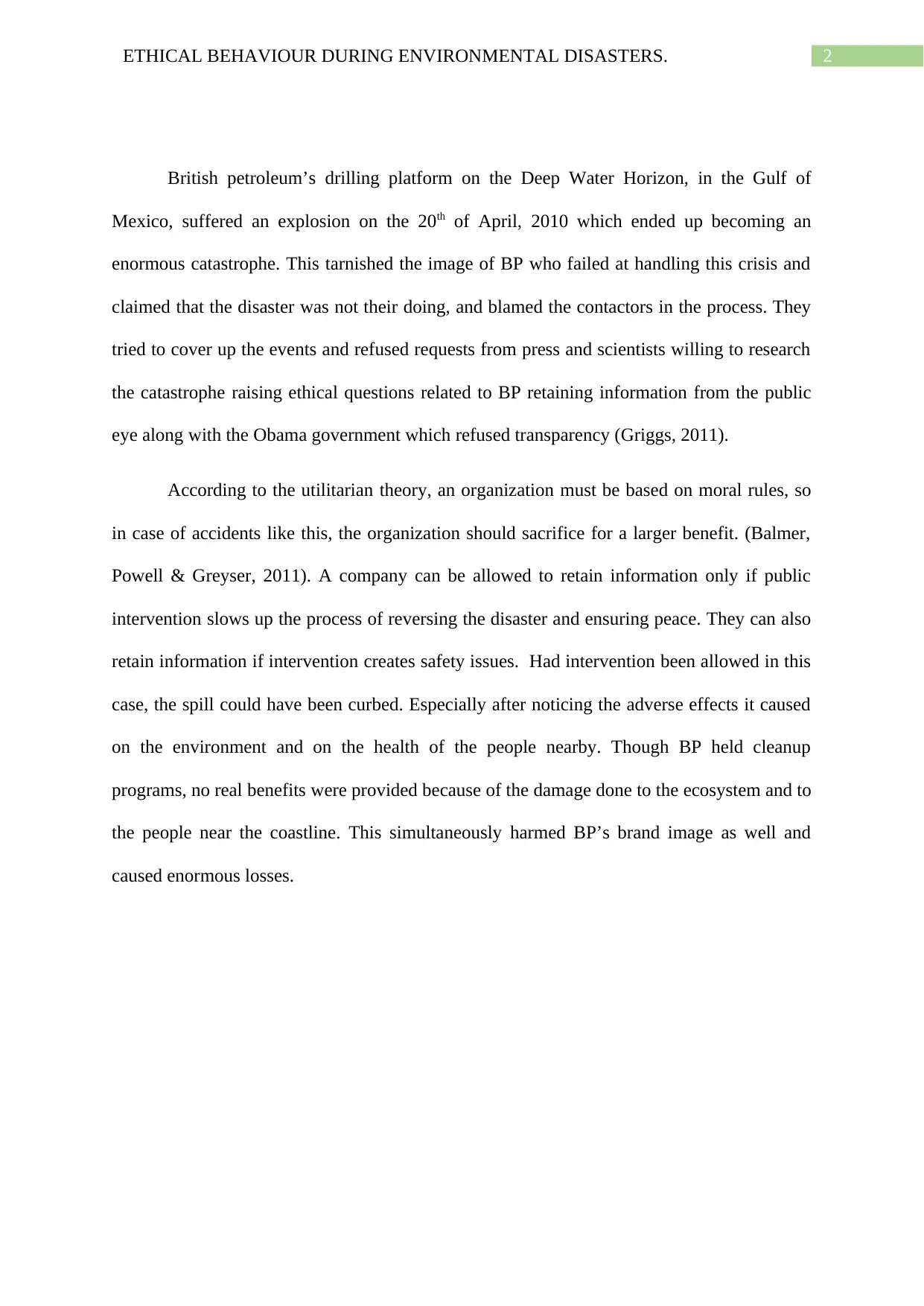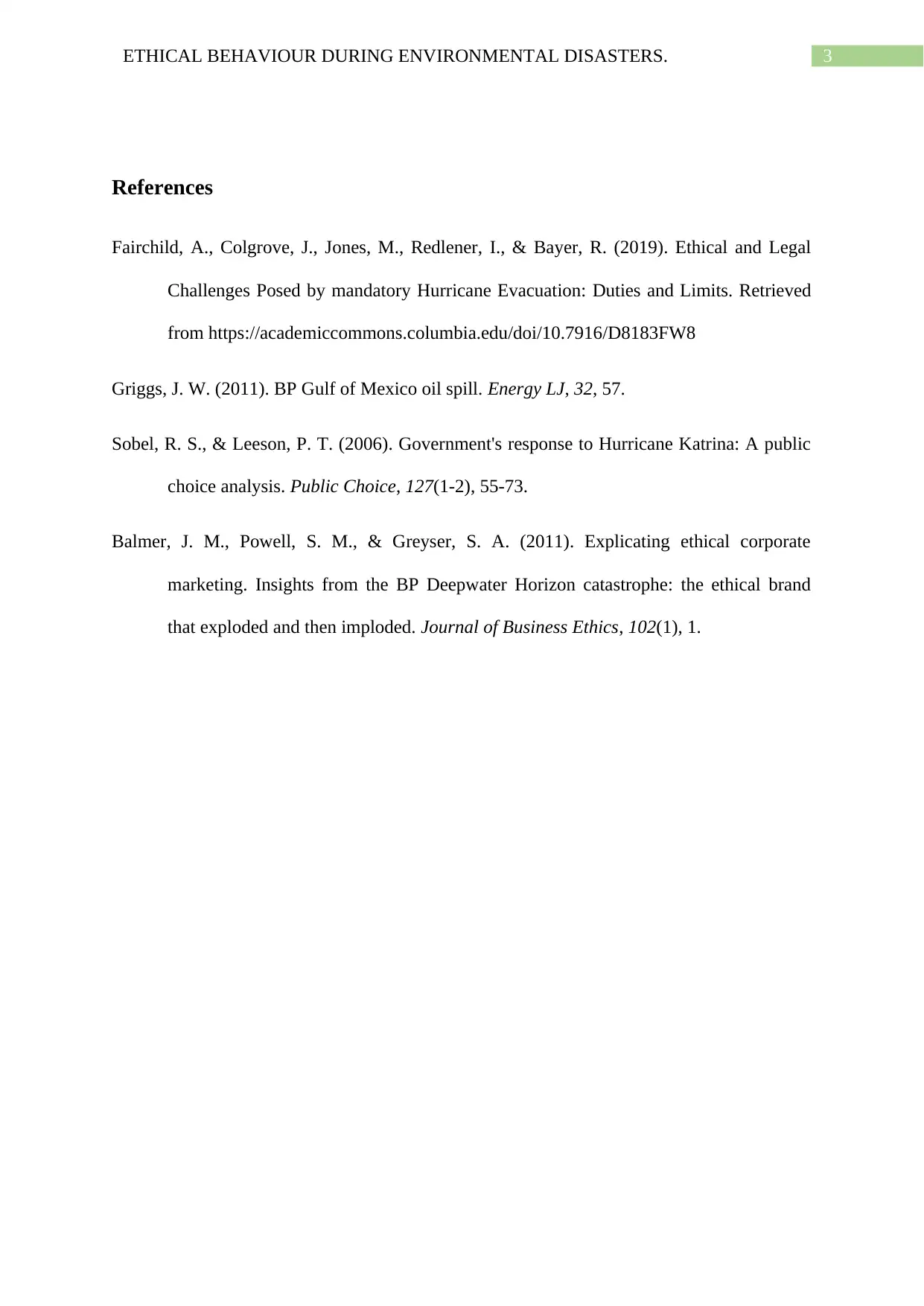Ethical Considerations in Environmental Disaster Response
VerifiedAdded on 2022/10/18
|4
|756
|10
Essay
AI Summary
This essay delves into the ethical complexities surrounding environmental disasters, using Hurricane Katrina and the Deepwater Horizon oil spill as compelling case studies. It scrutinizes the ethical implications of mandatory evacuations, the government's response, and the responsibilities of corporations in crisis situations. The analysis extends to the application of ethical theories, such as utilitarianism, to evaluate decision-making processes. The essay highlights issues of bureaucratic inefficiency, delayed information dissemination, and the impact of corporate actions on both the environment and public health. By examining these instances, the essay underscores the importance of prompt, ethical behavior and transparent communication in disaster management, emphasizing the need for independent disaster management teams, and the ethical balancing of public safety and individual rights. The essay also considers the ethical dimensions of information control and the potential for conflicts of interest in crisis response.
1 out of 4





![[object Object]](/_next/static/media/star-bottom.7253800d.svg)